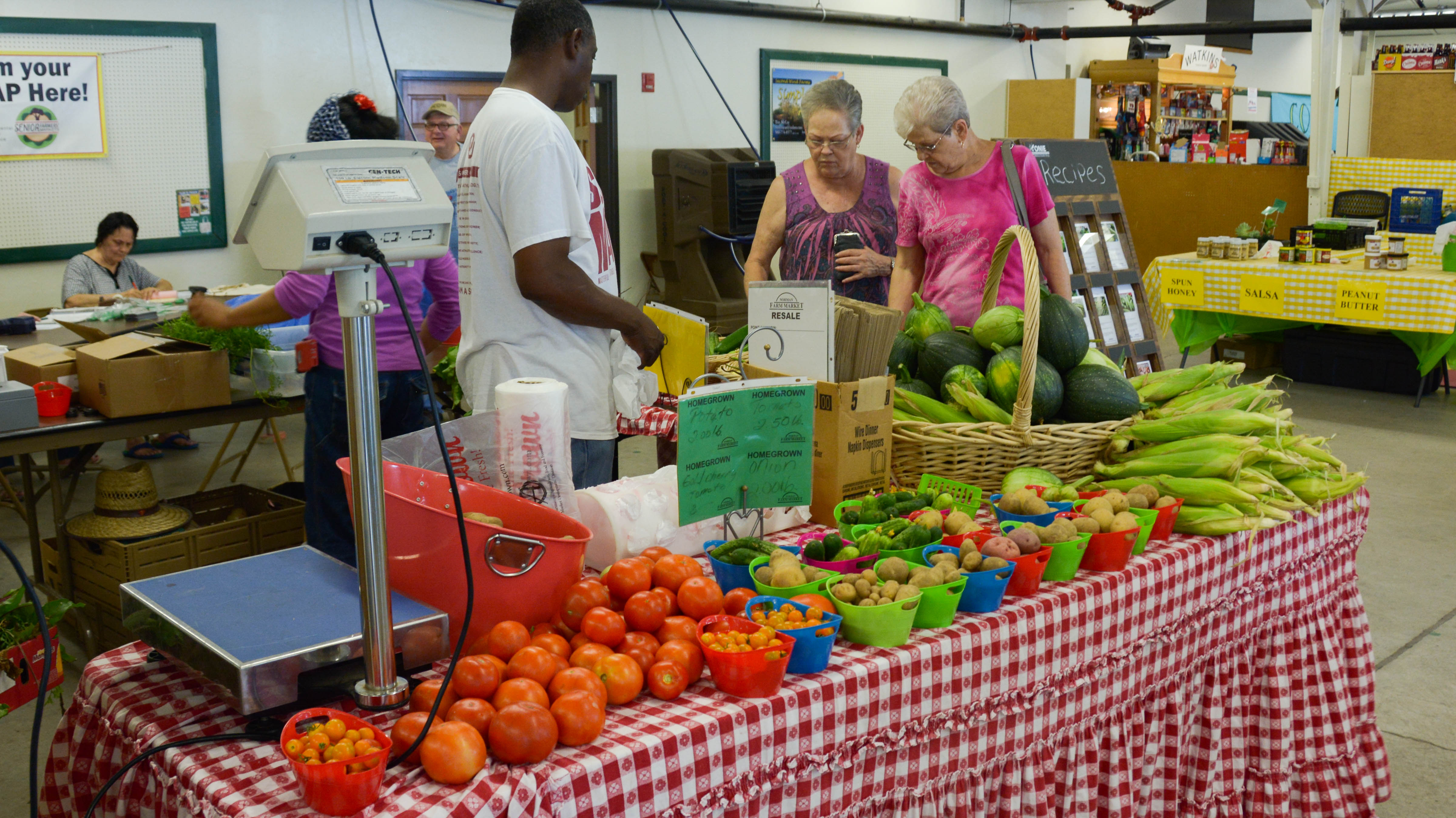While it may be convenient to buy an apple from the local Walmart, where does the apple came from? And where is the money is going? More than likely, the apple is not locally grown, and the money spent on buying the apple isn’t invested back into the community.
Charles Dennis, a veteran produce vendor of Norman’s Farm Market, emphasizes the benefits the farmer’s market brings to the community both economically and environmentally.
“They know it comes from Oklahoma and not from somewhere else,” Dennis said.
If consumers buy from their local farmer’s market, where prices are usually higher, they’re making an investment into the community that helps make the community more sustainable.
While grocery stores may charge less, consumers at the farmer’s market are willing to pay more for products that are locally and organically grown, Dennis said.
Organically grown means the food was grown without using pesticides or other chemicals. Farm market participants are conscious of grocery stores being able to charge less.
However, they know the product is grown by local farmers without any GMOs. This means consumers receive a fresher, more natural environmentally friendly, and more natural product while also investing money back into the community. This is especially important for consumers who are more aware of how their food is grown, according to thebalance.com.
Don’t just take the word of the vendors, though. Take the word from the actual consumers, such as first-timer Alisha Matthews and Kristen Mayfield, who has been attending for 6 years. They share views of the farmer’s market being a place to invest money into the community and getting the freshest, locally grown produce.
Even more so, Matthews and Mayfield appreciate the personal touch. Getting to see the faces of the people selling their goods to them is important to them. For first-time shopper Alisha Matthews and Kristen Mayfield, who has been shopping at the Norman’s Farm Market for 6 years, it is especially important to have access to organically grown produce.
Mayfield is especially against genetically-modified food, saying, “I want to eat real food like my grandparents.”
Both Matthews and Mayfield share views about the farmer’s market as a place to invest money into the community while getting the freshest produce. In addition, Matthews and Mayfield appreciate the personal touch. They said getting to see the faces of the people selling their goods is important to them.
“You make friends with the vendors. You make friends with the people,” said Dennis.
The Buying from your local farmer’s market can even have an impact on the environment. Foods bought at farmer’s markets are usually grown without pesticides or other chemicals. Without the use of these chemicals, there is no runoff from the fields to surrounding rivers and lakes possibly poisoning the natural wildlife.
Buying more of your goods at local businesses also decreases the need to build larger supermarkets. While that might not sound inherently detrimental to the surrounding environment, in most cases the impact can be much larger than you thought.
The issue sprouts from simply how much land most new supermarkets need. Between the parking lot, the shopping center, and a place to keep inventory, the only place with the required space being on the fringe of the city.
Norman’s Farm Market, it begins on the first Saturday in April each year, ending on the last Tuesday or Saturday in October. It is open from 4-7 p.m. Tuesdays and 8 a.m. to noon Saturdays.
To read more about organically grown produce, visit this info page and the Norman Farm Market website.






